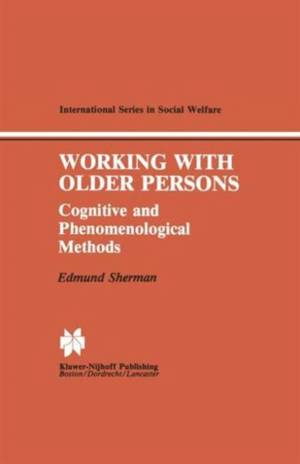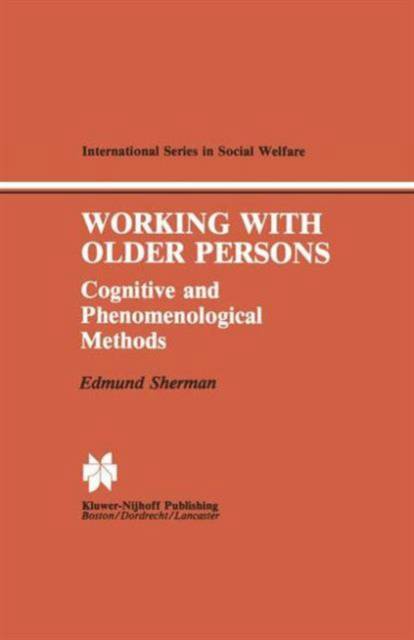
Bedankt voor het vertrouwen het afgelopen jaar! Om jou te bedanken bieden we GRATIS verzending (in België) aan op alles gedurende de hele maand januari.
- Afhalen na 1 uur in een winkel met voorraad
- In januari gratis thuislevering in België
- Ruim aanbod met 7 miljoen producten
Bedankt voor het vertrouwen het afgelopen jaar! Om jou te bedanken bieden we GRATIS verzending (in België) aan op alles gedurende de hele maand januari.
- Afhalen na 1 uur in een winkel met voorraad
- In januari gratis thuislevering in België
- Ruim aanbod met 7 miljoen producten
Zoeken
€ 100,95
+ 201 punten
Uitvoering
Omschrijving
The essential purpose of this book is to provide practitioners and students of the human service professions with a practice approach and methodology that has been developed over the past ten years in both research and clinical work with older persons. It is concerned with the kinds of emotional prob- lems that are salient and pervasive in the second half of life, that is, from about the ages of 50 on into the 60s, 70s, and 80s. These problems are often related to inevitable developmental and situational events and losses, as well as the decrements and concerns that are prevalent in the latter decades of life: physical decline and illness, loss of loved ones, concerns about one's own mortality, loss of major occupational and family roles, and the issues of meaning in and about one's life which are raised by these losses and concerns. The approach to these problems will include a range of assessment and treatment methods for counseling and psychotherapy. It will, however, em- phasize two particular kinds of methods for dealing with these problems. The first of these, cognitive methods, tend to focus on how older persons think about or construe these problems whereas phenomenological methods focus on how persons experience or feel about them. What is common to both is that they are oriented toward the person's perception of the prob- lem.
Specificaties
Betrokkenen
- Auteur(s):
- Uitgeverij:
Inhoud
- Aantal bladzijden:
- 244
- Taal:
- Engels
- Reeks:
- Reeksnummer:
- nr. 6
Eigenschappen
- Productcode (EAN):
- 9780898381443
- Verschijningsdatum:
- 31/10/1984
- Uitvoering:
- Hardcover
- Formaat:
- Genaaid
- Gewicht:
- 419 g

Alleen bij Standaard Boekhandel
+ 201 punten op je klantenkaart van Standaard Boekhandel
Beoordelingen
We publiceren alleen reviews die voldoen aan de voorwaarden voor reviews. Bekijk onze voorwaarden voor reviews.









